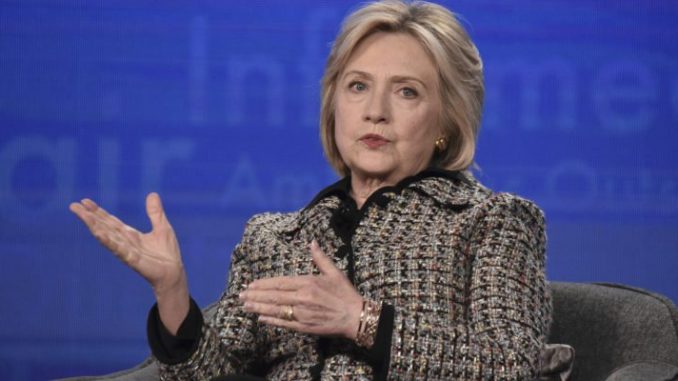
October 13, 2020
Gulf Arabs giving wide coverage to Clinton e-mails as Mike Pompeo says he will release more.
By Paul Shindman, World Israel News
Arab media gave wide coverage Monday to the thousands of emails expected to be released that were stored on former Vice President Hillary Clinton’s private computer server while she served as secretary of state.
On Friday, Secretary of State Mike Pompeo said more Clinton-era e-mails would be released.
“We’re doing it as fast as we can. I certainly think there’ll be more to see before the election,” Pompeo said.
The Egypt Today news website reported that Arab and Gulf media were focusing on the emails even though there did not appear to be any new material released yet. The existing e-mails did reveal “a relation between the U.S. during the term of former President Barack Obama and [the] Qatari Al Jazeera [news company] as well as the Muslim Brotherhood group,” the report said.
The Muslim Brotherhood is an extremist Islamist group based in Egypt that helped found the Hamas terror group in Gaza and is known for having criticized the U.S. for killing Al Qaeda terror group founder Osama bin Laden in 2011.
“We believe that Zionism, the United States, and England are gangs that kill children and women and men and destroy houses and fields,” former Muslim Brotherhood Supreme Guide Mohammed Mahdi Akef once told Washington Institute researcher Eric Trager.
Last week, President Donald Trump pushed Pompeo to release the emails that Clinton had stored on her own private e-mail server instead of using the State Department’s secured computer system in violation of government regulations.
The Al Arabiya news website said the messages made clear “what some describe as suspicious plans to support the chaos that would undermine stability in the region” by the Obama administration.
One email revealed a 2011 incident when the late Saudi foreign minister, Saud Al Faisal, hung up on Clinton after she asked him not to send Saudi troops to neighboring Bahrain to help tamp down anti-government riots during the Arab Spring.
The emails contained details of how Clinton appeared to want to leverage Qatar to support Arab Spring protests by establishing a $100 million fund to provide the Muslim Brotherhood with its own news network so it could push its messages out to a wider audience.
Several reports in the Egyptian and Saudi press noted how during a trip to Qatar Clinton met with senior management at the Al-Jazeera network, known for its anti-Israel and anti-American editorial positions, but left little time to meet with U.S. military leaders at a major U.S. forces base there.
The Sky News Arabic channel reported that the emails showed Clinton had bypassed normal channels to communicate with Saudi individuals who supported the Brotherhood, some of whom were later charged with the planning and support of terrorist operations inside Saudi Arabia.
“The disclosure of these correspondences blew up volcanoes everywhere, including the Gulf states, and revealed to us in the Kingdom there was planning to enable the Brotherhood organization to rule the Arab world, and the Obama administration planned this with Qatar and Turkey,” Saudi writer Ahmed Al-Farraj told Sky News.
The State Department conducted an extensive three-year investigation into the email affair and concluded last year that although 38 people committed 91 security violations out of the roughly 33,000 individual emails Clinton’s private server handled while she was secretary of state, there was no widespread misuse of the server to mishandle classified information.
In 2016, then-FBI Director Jame Comey said there was “evidence of potential violations of the statutes regarding the handling of classified information,” but “we are expressing to [the] Justice [department] our view that no charges are appropriate in this case.”
It is not known yet which additional emails Pompeo will order released or when.
